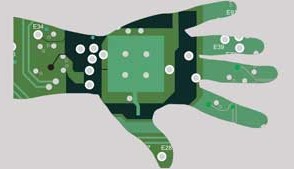Biodegradable Transistor made from Blood, Milk & Mucus
on

Silicon is the basis of most modern technology, including cellular phones and computers. But according to Tel Aviv University researchers, this material is quickly becoming outdated in an industry producing ever-smaller products that are less harmful to the environment.
The researchers have brought together cutting-edge techniques from multiple fields of science to create protein-based transistors from organic materials found in the human body. They could become the basis of a new generation of nano-sized technologies that are both flexible and biodegradable.
The researchers turned to biology and chemistry for a different approach to building a transistor. When applied to a base material various combinations of blood, milk, and mucus proteins molecules self-assemble to create a semi-conducting film on a nano-scale. In the case of blood protein, for example, the film has a thickness of approximately 4 nm. The researchers have already succeeded in taking the first step towards biodegradable displays.
Together the three different kinds of proteins create a complete circuit with electronic and optical capabilities. Blood protein has the ability to absorb oxygen, which permits the "doping" of semi-conductors with specific chemicals in order to create specific properties. Milk proteins, known for their strength in difficult environments, form the fibers which are the building blocks of the transistors, while the mucosal proteins have the ability to keep red, green and, blue fluorescent dyes separate, together creating the white light emission that is necessary for advanced optics. Overall, the natural abilities of each protein give the researchers unique control over the resulting organic transistor, allowing adjustments for conductivity, memory storage, and fluorescence among other characteristics.


Discussion (0 comments)